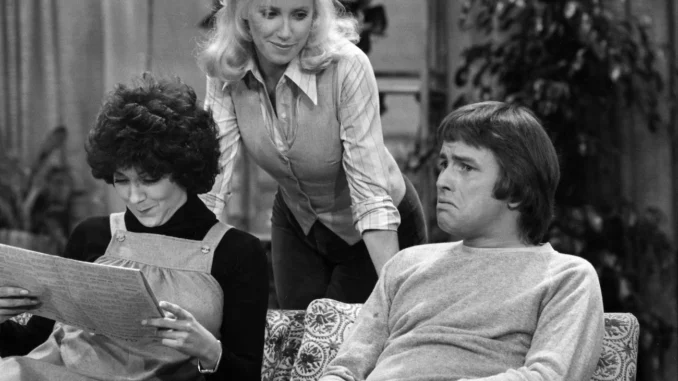
Three’s Company, ABC’s hugely popular sitcom of the late ’70s and early ’80s, earned its place in American pop culture history. For eight seasons, roommates Jack Tripper (John Ritter), Janet Wood (Joyce DeWitt), Chrissy Snow (Suzanne Somers)—and later Cindy Snow (Jenilee Harrison) and Terri Alden (Priscilla Barnes)—invited viewers to “come and knock on our door” each week for a dose of slapstick comedy and innuendo.
But did you know the show launched not one but two spinoffs? Here’s the story of how Three’s Company became Three’s a Crowd—and then ended.
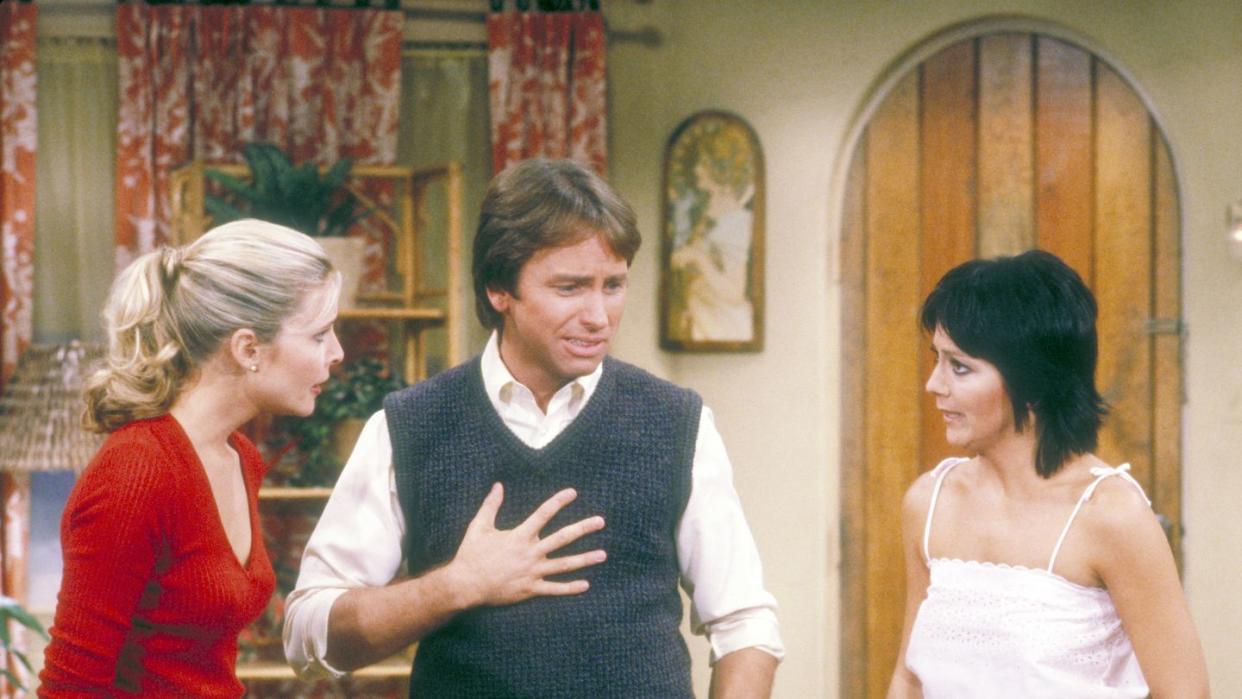
Potential spin-offs for Three’s Company were in the cards from the beginning. The show, which premiered in 1977, was itself based on the successful British sitcom, Man About the House (1973–1976), also about a man with two female roommates. That show resulted in two successful spinoffs for UK audiences: George and Mildred (1976–1977) about their landlords, and Robin’s Nest (1977–1981), which continued the story of Robin Tripp, aka the British Jack Tripper.
American producers perhaps flew a little too close to the sun when they tried to capitalize on the success of Three’s Company early: Instead of waiting until the sitcom had run its course before trying a spinoff, as its British predecessor had, they launched a spinoff titled The Ropers, based on landlords Stanley and Helen Roper (Norman Fell and Audra Lindley), in 1979 while the first show was at its height.
Unfortunately, The Ropers did not take off and only lasted a season and a half, and the two beloved characters could not return to Three’s Company as they had already been written off the show. The upside? The comedic brilliance of Don Knotts as Mr. Furley, who stepped in as landlord on Three’s Company in season four and remained on the show till the end.
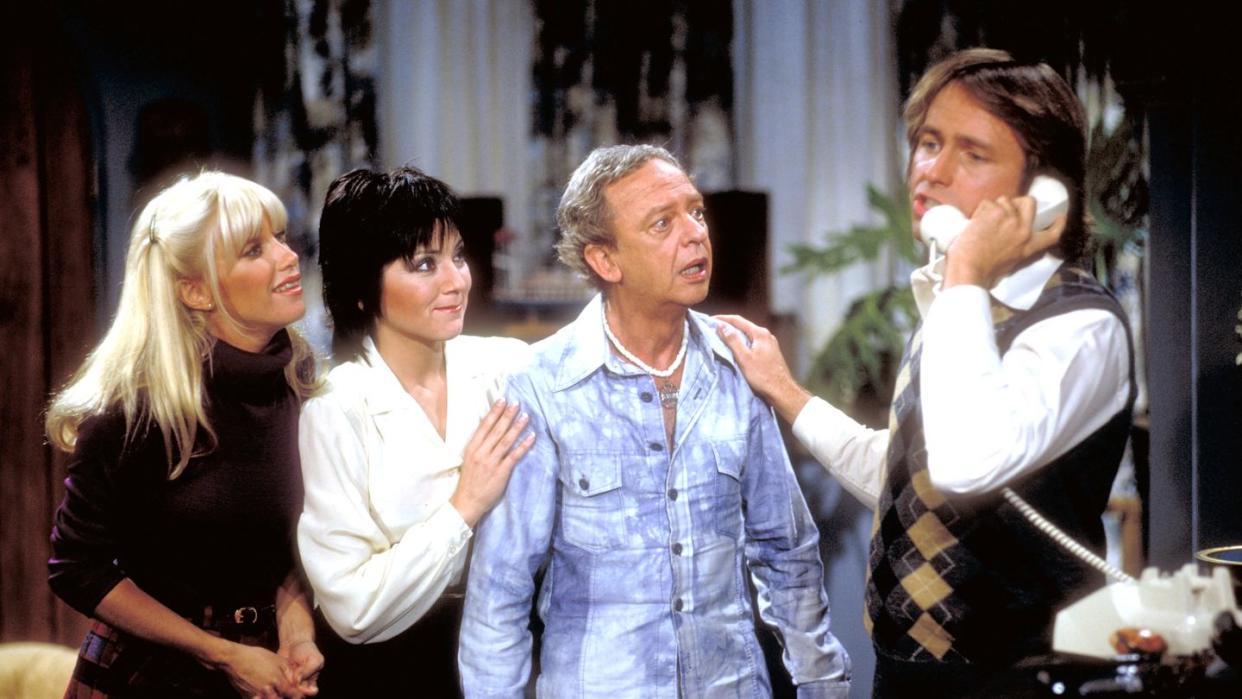
In 1980, shortly after The Ropers ended, new trouble was brewing for Three’s Company. When Somers’s contract was up for renewal, she took a stand for equal pay on par with Ritter’s. The ongoing negotiations spilled over into filming for season five, and eventually she was fired. The character of Chrissy was replaced temporarily by her cousin Cindy (Harrison) and permanently by Terri (Barnes).
Now, here’s where TV critics disagree: According to the documentary series The Unknown Story on Peacock, Somers’s exit was the beginning of the end for the show. But Chris Mann, author of 1998’s Come and Knock on Our Door: A Hers and Hers and His Guide to Three’s Company, disagrees.
“The show was completely reinvigorated in Season 6,” Mann told Closer Weekly. “The episode where John did the extended dance sequence on liquor and some sort of tranquilizer is one of the standout episodes of any sitcom. It ranks up there with Lucy stomping grapes or in the chocolate factory.”
By the eighth season, however, Three’s Company ratings were plummeting in the wake of a new show, The A-Team, which premiered in 1983 and became a runaway success. Still, Ritter took home an Emmy and a Golden Globe during that eighth season, and the show garnered the People’s Choice Award. From the producers’ view, a spinoff starring Ritter was the solution.
Three’s Company Becomes a Crowd
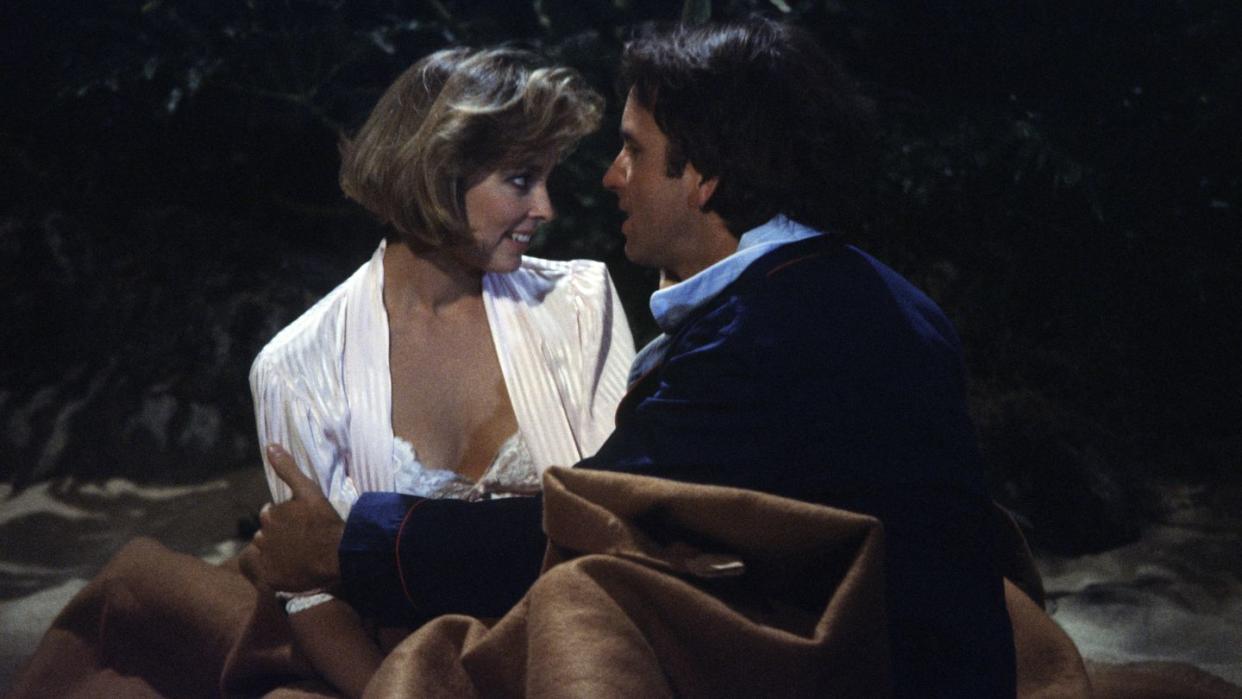
Development on Three’s a Crowd, modeled after Britain’s Robin’s Nest, began as the last season of Three’s Company wrapped up. In this second spinoff, Jack Tripper falls in love with stewardess Vicky Bradford (Mary Cadorette) and proposes. Haunted by her divorced parents’ rocky marriage, Vicky refuses. Instead, the unmarried couple moves in together in an apartment above Jack’s restaurant. Her disproving father James (Robert Mandan) buys the building and inserts himself in their lives—and there you have it: three’s no longer company; three’s a crowd.
There was just one problem, neither Ritter nor the producers told the rest of the cast this was happening.
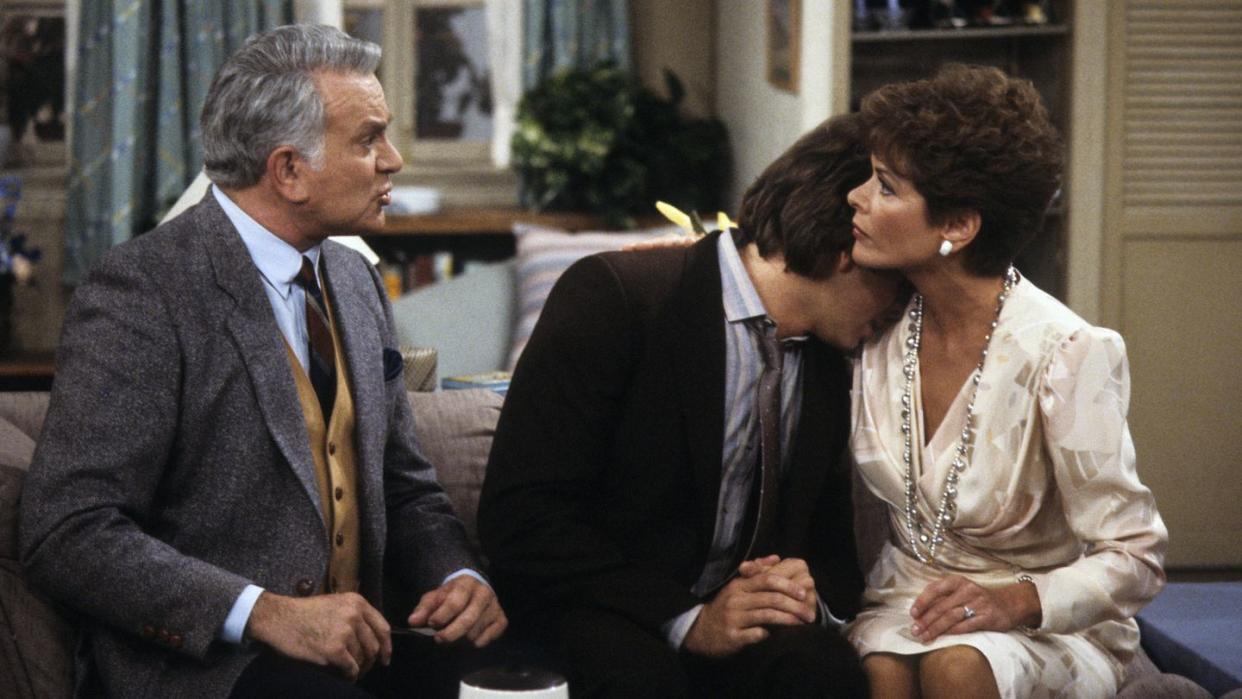
DeWitt, who played Janet, felt especially betrayed about being kept in the dark, according to The Unknown Story, although she soon reconciled with Ritter. For Barnes, aka Terri, this type of behavior from the producers was nothing new. According to CNN, Barnes loved her costars but had long felt her bosses were too controlling.
Vicky’s character was introduced in the final episodes of Three’s Company season eight. When the fall TV season kicked off in September 1984, ABC aired a special one-hour series finale of the show, leading into the premiere of Three’s a Crowd the next week.
The 22-episode first season of Three’s a Crowd performed modestly in the ratings but was no competition for The A-Team powerhouse. As a 1984 New York Times review pointed out at the start, the new show didn’t offer the comedically gifted Ritter room for growth; “the spectre of fatal staleness is beginning to enter the picture,” reads the critique.
While many critics have panned the spinoff as a failure (Mann, for one, said writing off all the Three’s Company characters other than Jack was “a misfire”), others some have been less harsh—and we’re not just talking about that one fan and comedy writer on Reddit who in 2021 felt compelled to tell the world, “Unpopular opinion: I really liked Three’s a Crowd.”
TV critic Jackson Upperco of the blog That’s Entertainment!, which lists the top five episodes of Three’s a Crowd if you’re interested, points to the delightful sparring between James and his ex-wife Claudia, portrayed by Jessica Walters (Arrested Development fans will remember her as Lucille Bluth!), as a spark of potential for the show.
Still, Three’s a Crowd was not to be. After the first season, ABC gave the greenlight to renew it only for a half season. For Ritter, it was a whole season or nothing, so he declined. The beloved actor went on to prolific success in movies and television, including the sitcom 8 Simple Rules with Kaley Cuoco, until his untimely death at age 54 in 2003.
